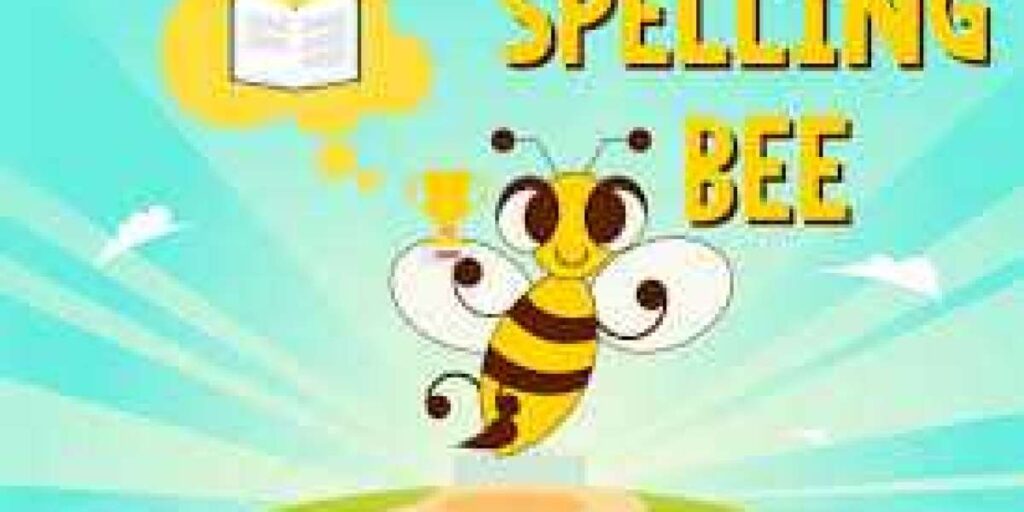Spelling bees are more than just a test of vocabulary—they are a challenge of memory, focus, and linguistic skills. These competitions involve words of varying complexity, from basic to advanced, putting your spelling abilities to the test. Whether you’re a beginner or an experienced speller, mastering spelling bee answers requires the right strategies and practice. This guide will give you actionable tips, examples, and techniques to help you succeed in spelling bees.
In this article, we will break down common spelling bee words by difficulty level, offer valuable tips for improving your spelling, and provide practical resources for preparation. Whether you’re preparing for a local spelling bee or aiming for the big stage, this guide will help you improve your chances of spelling success.
Common Spelling Bee Words
Spelling bees usually start with simpler words and progressively introduce more challenging vocabulary. By familiarizing yourself with common words at different difficulty levels, you’ll build confidence and improve your chances of success.
Easy Words for Beginners
In the early rounds of a spelling bee, participants often face simple words that are used in everyday life. Words like “apple,” “cat,” and “dog” are examples of easy spelling bee words. While these may seem straightforward, spelling them correctly under competition pressure can still be tricky.
The key to success with these words is practicing spelling them aloud. Saying each word slowly and breaking it down into syllables can help solidify the correct spelling in your mind. For instance, take the word “banana.” By breaking it down to “ba-na-na,” you give yourself a better chance of spelling it correctly, even under pressure.
Intermediate Words
As the competition progresses, intermediate words present new challenges. These words might include “exaggerate,” “balloon,” or “equipment.” Such words introduce complexities like double letters or tricky endings that can confuse participants.

To tackle intermediate words, it’s essential to practice frequently and focus on spelling patterns. For example, in “exaggerate,” knowing that many words with Latin origins feature double letters can help you avoid common mistakes. Repetition is key—practice spelling these words until they become second nature.
Advanced Words
When you reach the later rounds of a spelling bee, expect to face advanced words like “onomatopoeia,” “juxtaposition,” or “surveillance.” These words are often difficult because they have unusual spelling patterns, silent letters, or roots in foreign languages.
Advanced words require an understanding of language origins and spelling patterns. For example, many complex spelling bee words come from Latin or Greek. Knowing common roots, prefixes, and suffixes can provide clues to their correct spelling. Incorporating these words into your regular practice will help reinforce their structure and meaning.
Tips to Improve Spelling for Competitions
Improving your spelling isn’t just about memorizing words; it’s about developing techniques that help you recall them under pressure. Below are some helpful tips to enhance your spelling skills and boost your confidence in competitions.
Read and Write Regularly
One of the best ways to improve spelling is through regular reading and writing. Reading exposes you to new words, reinforcing their spelling, while writing helps solidify that knowledge through repetition.
Diversify your reading materials—novels, magazines, news articles—so you can see words used in different contexts. When you encounter a word you don’t know, write it down and practice spelling it multiple times. This consistent exposure helps improve spelling accuracy over time.
Break Words into Syllables
Breaking words into syllables is a powerful strategy to make long or complex words easier to spell. For instance, if you come across a long word like “supercalifragilisticexpialidocious,” breaking it into smaller parts—”su-per-cal-i-frag-il-is-tic-ex-pi-al-i-do-cious”—makes it more manageable.
This method also helps you focus on each syllable, reducing the chances of spelling errors. By mastering the art of breaking words into syllables, you can approach difficult words with more confidence.
Use Flashcards
Flashcards are a great way to practice spelling words on the go. Create a set of flashcards with a word on one side and its definition or a sentence example on the other. You can quiz yourself or get someone to help test your knowledge.
The repetitive nature of flashcards encourages active recall, strengthening your ability to remember words quickly and accurately. Over time, you’ll build a mental library of words that you can draw upon in a spelling bee.
How to Handle Difficult Words
As you advance in a spelling bee, the words get harder. Learning how to approach tricky or difficult words is essential for success. Here’s how you can recognize and manage challenging words in the competition.
Recognizing and Approaching Tricky Words
Tricky words often include silent letters, irregular spellings, or unfamiliar vowel combinations. Words like “psychology” (with a silent “p”) or “pharaoh” (with an unexpected combination of vowels) are good examples.
When encountering a tricky word, break it into syllables and focus on the parts that are likely to cause confusion. Understanding the origin of a word can also provide helpful clues. For instance, many words with Greek roots have unusual letter combinations, so knowing this pattern can give you an edge.
Learning Words from Various Categories
In spelling bees, words often come from specialized categories, such as science, foreign loanwords, or historical terms. Words like “osmosis” (a scientific term) or “rendezvous” (a French loanword) commonly appear in competitions.
It’s important to study words from different categories and familiarize yourself with their spelling rules. This will help you prepare for the diversity of words used in competitions.
Understanding Commonly Misspelled Words
Many words are frequently misspelled due to their irregular structure or pronunciation. For example, “separate” is often spelled as “seperate” because of how it sounds. Recognizing commonly misspelled words and practicing them can help you avoid these mistakes in a spelling bee.
Practice with word lists that feature commonly misspelled words, focusing on the correct spelling and the reasons why people often get them wrong. This will help you remember the proper form during competitions.
Best Resources for Spelling Bee Practice
Preparing for a spelling bee requires access to the right resources. The more you practice, the better your chances of success. Here are some top resources to help you get ready.
Online Spelling Resources
There are several websites and apps that offer spelling bee practice. Sites like SpellingCity and the Scripps National Spelling Bee website provide word lists and practice tests that mimic real competition settings.
These tools allow you to test your spelling skills, track your progress, and improve in areas where you’re struggling. Many of these resources are also free, making them easily accessible to everyone.
Recommended Spelling Books and Word Lists
Books like How to Spell Like a Champ or Bee Season offer valuable tips from past champions and detailed spelling lists for practice. You can also find official word lists, such as those from the Scripps National Spelling Bee, which provide an extensive range of words at varying difficulty levels.
These books and lists will give you a clear understanding of what to expect in competitions and help you prepare effectively.
Participate in Mock Spelling Bees
Participating in mock spelling bees at school or with friends and family can simulate the competition environment. These mock competitions give you the opportunity to practice spelling in a timed, high-pressure setting, which will prepare you for the real thing.
Mock spelling bees can help you get used to thinking quickly under pressure, boosting your confidence when it’s time for the actual event.
FAQs
1. How can I prepare for a spelling bee quickly?
Practice with word lists, use flashcards, and participate in mock spelling bees. Focus on commonly misspelled words and break words into syllables to make learning faster.
2. What are some tips to avoid spelling mistakes?
Read regularly, break words into syllables, and use word origins to understand tricky spellings. Repetition and practicing with difficult words will also help.
3. How do I stay calm during a spelling bee?
Take deep breaths, focus on the word you’re given, and ask for definitions or sample sentences if you’re unsure. Practicing under pressure with mock competitions can also help.
4. What should I do if I don’t know how to spell a word?
Break the word down into its syllables, think about common spelling patterns, and remember any word roots or origins that might give you a clue.
5. Where can I find spelling bee word lists?
You can find official word lists on the Scripps National Spelling Bee website, as well as on apps like SpellingCity or Quizlet.
Conclusion
Spelling bees offer a challenging yet rewarding experience for participants. By practicing common words, using effective spelling strategies, and taking advantage of the many available resources, you can improve your spelling and increase your chances of success. Whether you’re a beginner or an advanced speller, dedication and consistent practice will lead to improvement.
Remember, spelling bees are not just about memorizing words; they’re about understanding the structure, origins, and patterns that govern the English language. So, keep practicing, stay calm under pressure, and go into your next competition with confidence!














